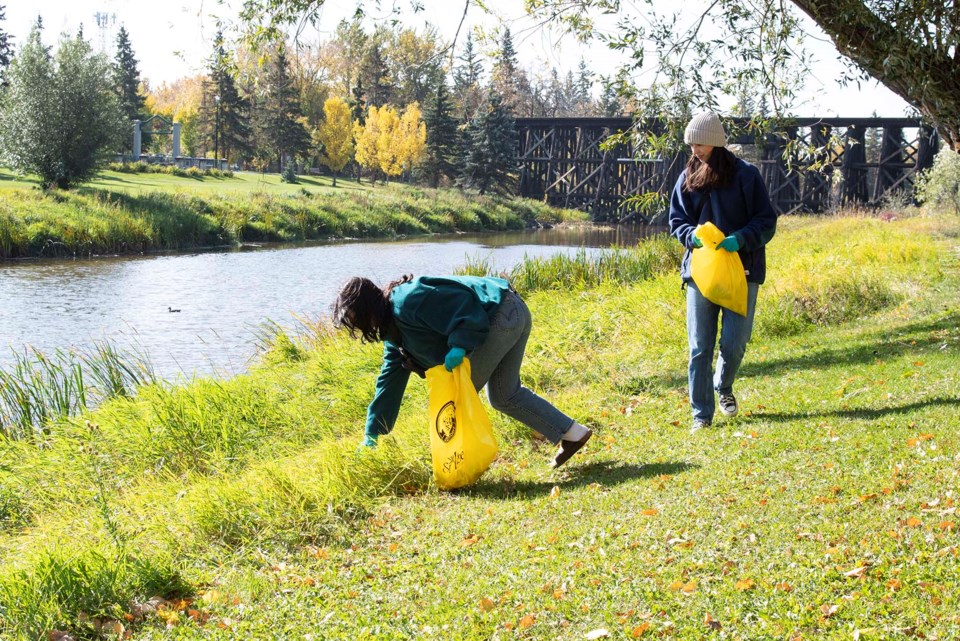The province has given a watershed group $200,000 to update research on the state of the Sturgeon River.
The Sturgeon River Watershed Alliance (SRWA) got $200,000 from the Alberta Community Partnership program in late January to fund its Intermunicipal Watershed Planning Project.
The alliance is a group of government and environmental officials responsible for managing the Sturgeon River watershed, which covers the roughly 3,301 square kilometres of land along the Sturgeon and its tributaries. It includes the City of St. Albert and the Big Lake Environment Support Society (BLESS).
Kelsie Norton, watershed planning co-ordinator for the North Saskatchewan Watershed Alliance (which includes the SRWA), said this money will fund a three-year effort to update water quality and infrastructure studies on the Sturgeon.
Bridges, culverts, and other water crossings can block fish movement and are vulnerable to erosion and sedimentation, Norton said. A 2018 study classified 65 per cent of the Sturgeon’s water crossings as medium or high risk because of flooding, erosion, sedimentation, fish passage interference, and public safety issues. The money will let the alliance update that 2018 study to help communities plan infrastructure upgrades and hold public information sessions on those issues.
There isn’t much regular water quality monitoring in along the Sturgeon right now outside of St. Albert and at its confluence with the North Saskatchewan River, Norton said. This money will let researchers identify pollution hotspots along the Sturgeon where researchers should create additional monitoring sites.
In an email, City of St. Albert environmental co-ordinator Melissa Logan said this grant could improve water quality in the Sturgeon and help municipalities find nature-based ways to manage water. The water crossing review would be of more use to rural residents than St. Albert ones, as the city doesn’t have many culverts.
Norton said St. Albert residents can help the Sturgeon watershed by supporting stewardship groups such as BLESS, cutting back on road salt, and planting native species in riparian/shoreline zones. About 80 per cent of all wild species depend on riparian zones for part of their lives, she added.
“You can be a steward no matter what your level of involvement,” Norton said.
Logan said other ways to help include keeping pet fish out of lakes and rivers; minimizing use of herbicides and fertilizers; remembering to clean, drain, and dry aquatic gear (including boats and life jackets) to stop the spread of invasive species; and participating in events such as Weed Warriors and the Clean and Green Riverfest.
Visit stalbert.ca/city/environment/sturgeon-river/what-can-you-do for more tips on how to protect the Sturgeon.



